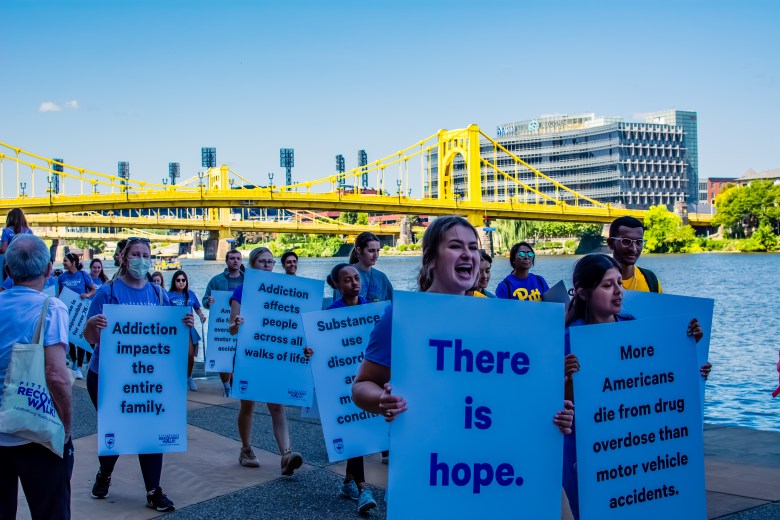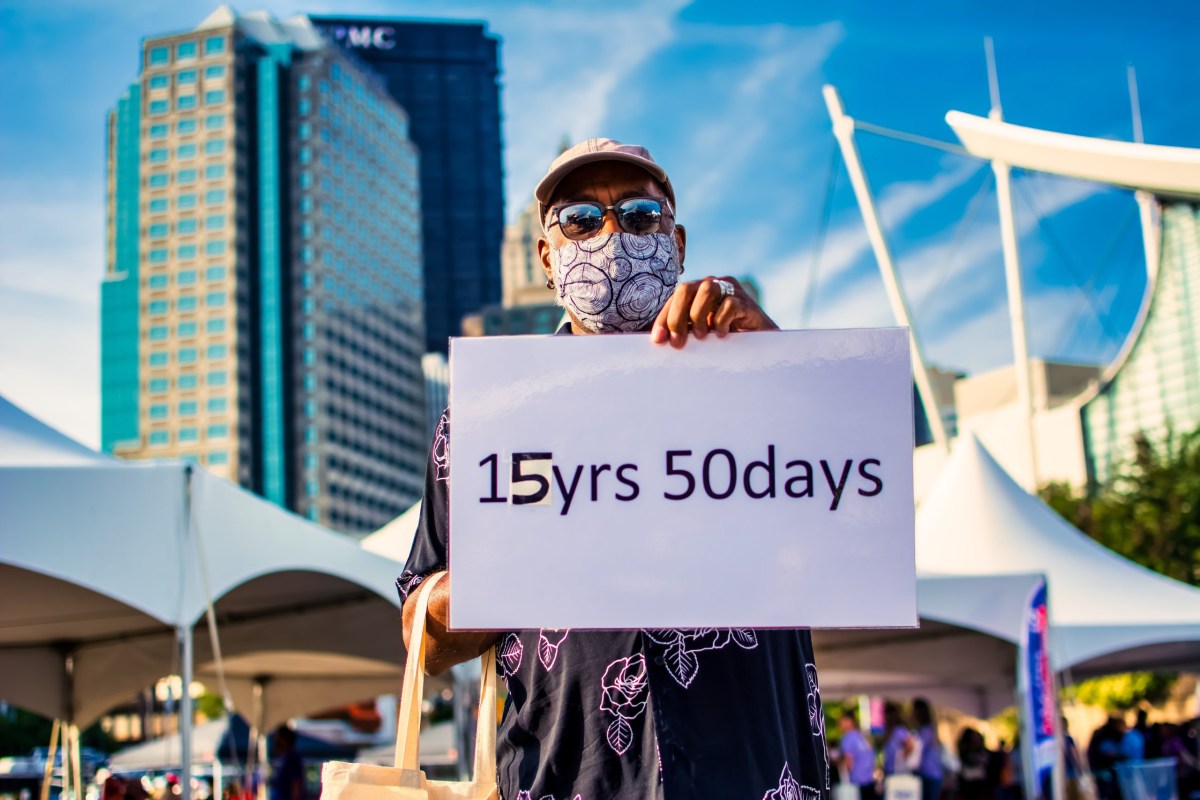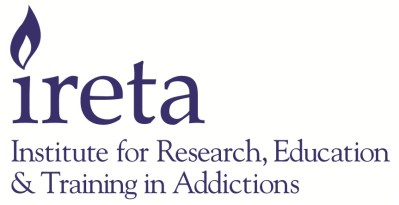More than 107,000 Americans lost their lives to drug overdose in 2021, leaving behind a multitude of family members and friends who still feel their absence. Those lives, which have been cut short, no longer hold the potential for joy, change or gratitude. However, those who are struggling with substance use actually have a good shot at recovery. Research indicates that one in 10 Americans has experienced problems with drugs and alcohol and gotten better.
Recovery from addiction is about as common as being left-handed. But stigma and pessimism about addiction persist, and they contribute to painful — and frequently tragic — outcomes.
“Stigma conceals the success stories that are happening every day in our backyard. Your neighbor may be in recovery, but you’re unlikely to know it,” said Jess Williams, a Pittsburgher in recovery who advocates against addiction stigma.
Experts point to stigma as a major barrier to help-seeking of any kind, including professional treatment, community services like needle exchange, or social support in general. Reluctance to seek help means that someone is less likely to get naloxone, which reverses overdose. They are less likely to find a supportive therapist. In short, they are more likely to suffer and die.
Stigma doesn’t just impact an individual. It leaves families with condemnation rather than support. It’s been said that, “Nobody brings you a casserole when your child has an addiction.” Ohio Township resident John Watts lost his son, Carter, to an overdose at the age of 20. Over the years that he dealt with addiction, Carter also struggled with mental health issues, homelessness and escalating physical health problems. As his father, Watts struggled to provide help that respected Carter’s autonomy.

After many efforts to help steer Carter on a path to healing, Watts realized that “we would continue to fail if we tried to help him choose … ultimately it would have to be his discovery and choice.” But for Carter, Watts observed, any path to recovery was obscured by danger and inadequate support. “How does a teenager and then young adult find some type of recovery, even if they want to, while they are homeless, jobless, educationless, battling triggers and mental health, as they search for food, a bathroom, and a place to sleep while many demons in different forms stalk them?”
State Rep. Jim Struzzi, R-Indiana, lost his brother, Michael, to an overdose in 2014. Since then, Struzzi has become passionate about spreading a message of hope to Pennsylvanians touched by addiction.
“I understand the devastating impact drug addiction can have on the lives of individuals and their families,” Struzzi said. “Everyone in our society is affected, yet there is hope. That is why supporting recovery is so important. People struggling with addiction need to know others care and there is a path back to a positive, rewarding quality of life.”

Struzzi is co-sponsoring a bill to legalize fentanyl test strips, which would help identify the presence of highly potent opioids in the drug supply and prevent future overdose deaths. He will speak at this year’s Pittsburgh Recovery Walk, which will be held on Sept. 17.
More than a year after Carter’s death in 2021, Watts described participation in the Pittsburgh Recovery Walk as a way to experience the kind of supportive, non-judgmental world he wishes Carter could have lived in.
“I volunteer and support the Pittsburgh Recovery Walk so I can help, but not enable, others like my son as I would’ve wanted the same support of others for Carter when there was still time for us,” Watts said.
Several thousand participants are expected at this year’s Pittsburgh Recovery Walk, which is free to attend and features a large resource fair, activities for kids, speakers sharing personal stories and a 1-mile parade through Downtown.







